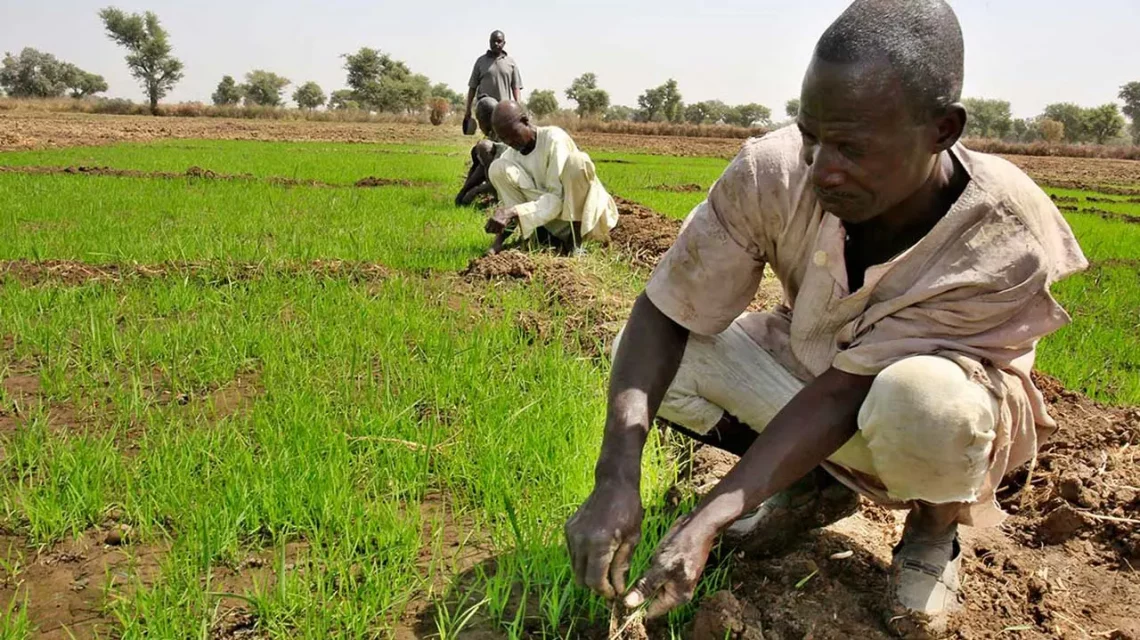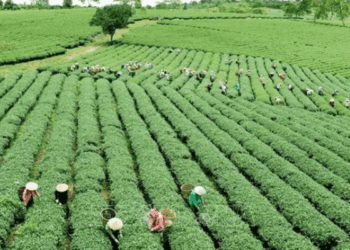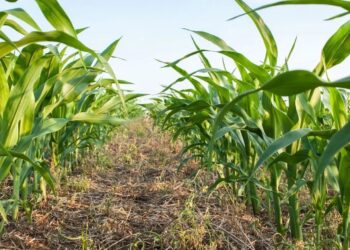The Nigerian Economic Summit Group (NESG) recently expressed concern over the declining rate in cultivation of food crops by farmers due to insecurity.
The chief operating officer of NESG, Dr. Tayo Aduloju, said this at the Agriculture and Food Security Nexus Validation and Consolidation Meeting in Abuja.
Aduloju said there was a huge supply-demand gap across all food crops, saying the country is not producing enough to meet local demand.
Aduloju, who is also the project director for the High Level Forum on the Sustainable Development Goals, said there was need for an urgent action to act for Nigeria to be food sufficient.
He called for collective response to halt the demand and supply deficit and to possibly expand agriculture to be a net surplus trade centre in the country.
“Some of the jobs we are creating in agriculture remain unsustainable; we are importing more agricultural products than we are exporting.
“The cultivation rate is going down. There is a need for urgency to act, there are things we can do internally and externally to make things better.
“This is impacting heavily on our ability to meet the Sustainable Development Goals 2030,” he said
Similarly, Mr. Omoboyede Olusanya, NESG’s Co-chair, Private Sector of the Agriculture and Food Security Policy Commission, noted that reduced incomes and disrupted supply chains, chronic and acute hunger were on the rise in the country.
“This increase is due to farmer-herder conflict, socio-economic conditions, natural hazards, climate change and pests, before COVID-19 pandemic which has slowed down, halted or reversed the last few years’ hard gains,” he said.
According to him, Nigeria is not on track to meet the SDGs without a sustained deliberate, decisive and collaborative approach.
Mr. Earnest Umakhihe, Permanent Secretary, Federal Ministry of Agriculture and Rural Development (FMARD), said that SDGs remained a global call to put an end to poverty.
Umakhihe, represented by Mr. Ibrahim Tanimi, FMARD’s Director Research and Planning added that the goal was to secure the planet, and ensure that everyone lives in peace and prosperity by 2030.
He said that of its 17 goals, the ones very relevant to the Agriculture sector are: Goal 1 – No Poverty, Goal 2-Zero Hunger, Goal 5 – Gender Equality, Goal 10 – Reduced Inequality and Goal 13 – Climate Action.
He said the National Agricultural Technology and Innovation Policy (NATIP) 2022-2027 is the prevailing framework for promoting research.
He said it would also help to promote extension service delivery, access to finance and insurance, agricultural land productivity and rural community livelihood.
“NATIP is the prevailing framework for promoting research and extension service delivery, access to finance and insurance, agricultural land productivity and rural community livelihood.
“In this regard, in place are the ministerial deliverables for the agriculture sector as part of government priorities,” he said.
The deliverables, he said, included land and climate management services and private-driven mechanisation programmes for enhancing crop yield per hectare, agricultural extension services delivery to increase the number of extension agents.
Others are: National Livestock Transformation Plan (NLTP) for facilitating grazing reserve, ranching animal breeding, dairy production and meat production, and national accelerated fish production programme of exploring marine and inland water resources, and national food.





